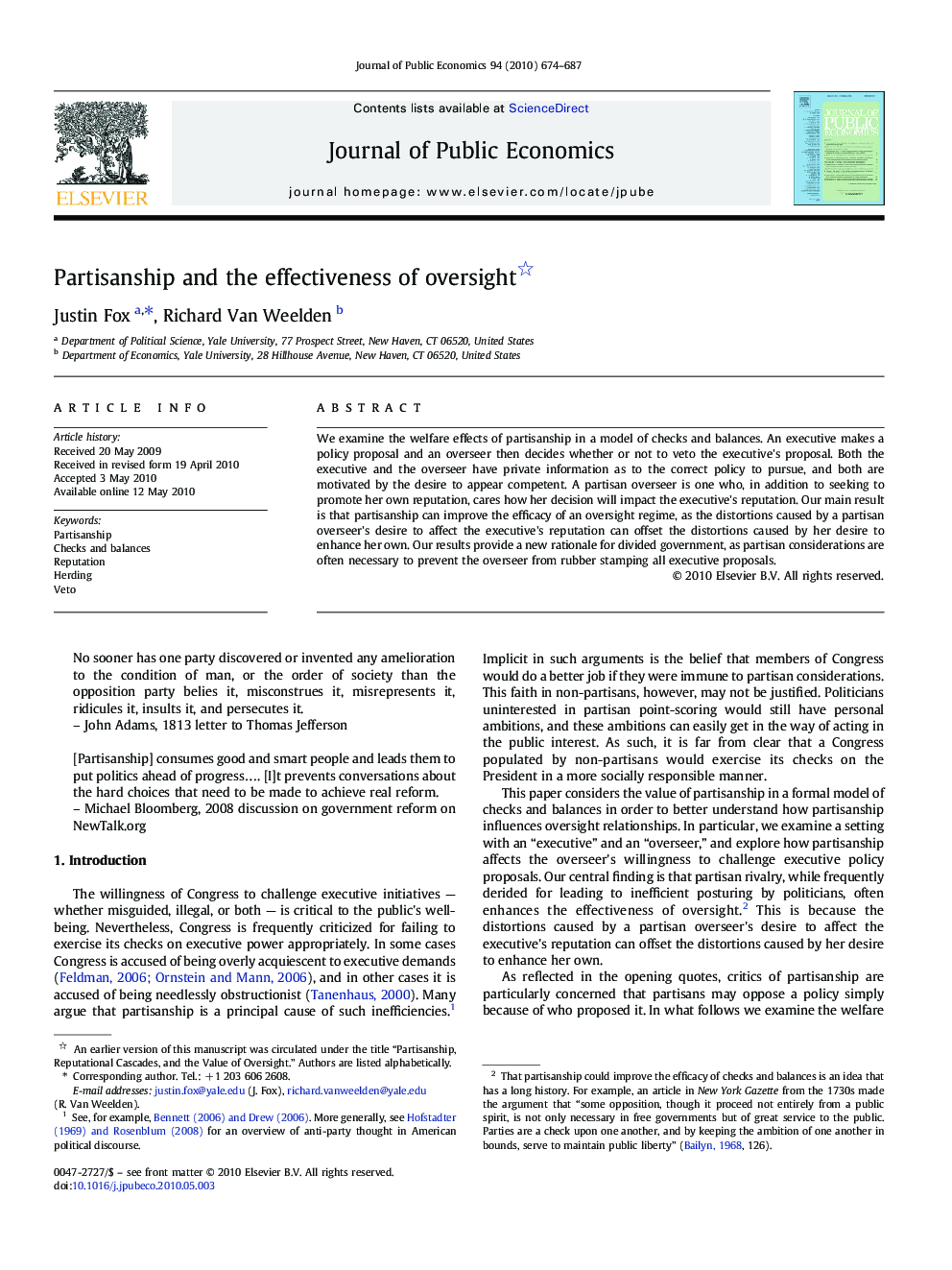| Article ID | Journal | Published Year | Pages | File Type |
|---|---|---|---|---|
| 969410 | Journal of Public Economics | 2010 | 14 Pages |
We examine the welfare effects of partisanship in a model of checks and balances. An executive makes a policy proposal and an overseer then decides whether or not to veto the executive's proposal. Both the executive and the overseer have private information as to the correct policy to pursue, and both are motivated by the desire to appear competent. A partisan overseer is one who, in addition to seeking to promote her own reputation, cares how her decision will impact the executive's reputation. Our main result is that partisanship can improve the efficacy of an oversight regime, as the distortions caused by a partisan overseer's desire to affect the executive's reputation can offset the distortions caused by her desire to enhance her own. Our results provide a new rationale for divided government, as partisan considerations are often necessary to prevent the overseer from rubber stamping all executive proposals.
